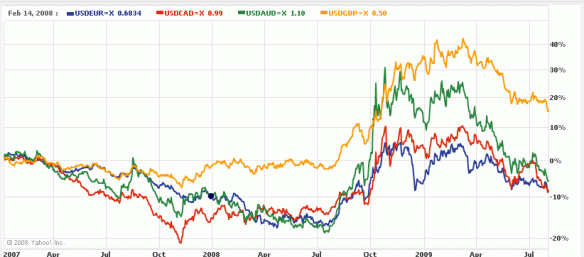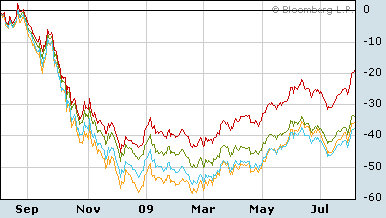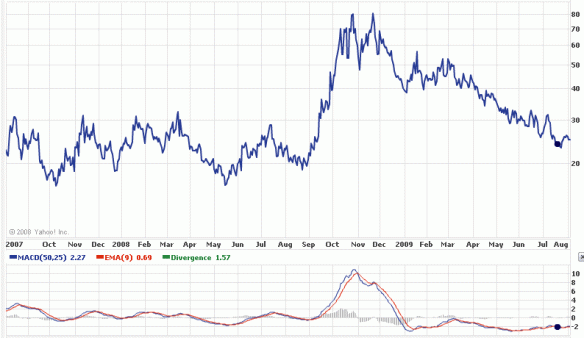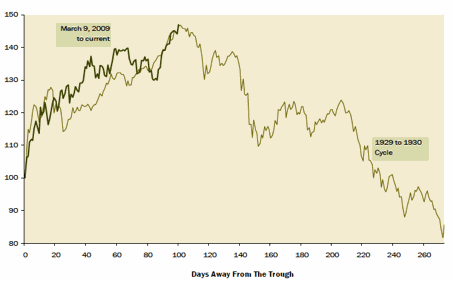All government debt is a racket, and should be repudiated.
–
Widely read investment advisor John Mauldin favors the continued enslavement of the Greek public to corrupt politicians, greedy unions, and German banks. He had this to say today in his email publication:
…if Greece defaults it does not necessarily mean they have to leave the EU, any more than if Illinois defaulted they would have to leave the United States. Greece could still use the euro and life could go on. EXCEPT. The markets would no longer lend the Greek government money at anything close to a livable rate. Greece would be forced to balance its budget. Since they are part of the euro, devaluing the currency is not an option. The results of controlling their fiscal deficit would not initially be pretty and would almost insure a serious prolonged recession or depression in the Greek area, with fall out in the region. It would be a sad decade for Greece. But in the long run, it is a better option than default.
Further, and more important to the rest of Europe and the world, the results of a Greek default would be financial turmoil. 250 billion euros (and maybe 300!) of Greek debt is in international bond funds, pension and insurance companies, and above all at banks. Think German banks. Already undercapitalized banks. Also, think of all the investment banks who have been selling relatively cheap (given the apparent risk) credit default swaps on Greece, in an unregulated market, exposing their balance sheets. What should be a simple, if sad, matter for the Greeks, becomes a problem for the world, just as subprime debt in the US caused a world credit crisis. And the risk of contagion from Portugal, Spain, et al is serious. 2 trillion euros of debt could get downgraded by the bond market in very short order. It could be a replay of the last credit crisis, just with new actors as the prime problem.
Bailing out Greece without serious and credible deficit reductions by their government over the next few years would simply delay the problem, and it is not altogether clear the bond markets would go along for very long. At the end of the day, it may be the bond market which forces the Greek government and its people to take some very bitter medicine. Stay tuned. This is just the beginning of what will be a series of sovereign debt crises over the coming decade. It is important for the world that we get this one solved right, or the consequences will be quite severe.
I respectfully disagree with Mr. Mauldin. I believe that default would be the best outcome for the Greek people and the rest of Europe, as well as the financial system. It is ironic that Mauldin does not support this outcome himself, since he claims to be a fan of von Mises, Hayek and Rothbard, all of whom would be appalled at the prospect of perpetuating the racket in Athens. Rothbard specifically advocated the repudiation of government debt, since it serves only the interest of politicians and special interests at the great expense of the society at large:
In the famous words of the left-Keynesian apostle of “functional finance,” Professor Abba Lernr, there is nothing wrong with the public debt because “we owe it to ourselves.” In those days, at least, conservatives were astute enough to realize that it made an enormous amount of difference whether—slicing through the obfuscatory collective nouns—one is a member of the “we” (the burdened taxpayer) or of the “ourselves” (those living off the proceeds of taxation)…
If sanctity of contracts should rule in the world of private debt, shouldn’t they be equally as sacrosanct in public debt? Shouldn’t public debt be governed by the same principles as private? The answer is no, even though such an answer may shock the sensibilities of most people. The reason is that the two forms of debt-transaction are totally different. If I borrow money from a mortgage bank, I have made a contract to transfer my money to a creditor at a future date; in a deep sense, he is the true owner of the money at that point, and if I don’t pay I am robbing him of his just property. But when government borrows money, it does not pledge its own money; its own resources are not liable. Government commits not its own life, fortune, and sacred honor to repay the debt, but ours. This is a horse, and a transaction, of a very different color.
For unlike the rest of us, government sells no productive good or service and therefore earns nothing. It can only get money by looting our resources through taxes, or through the hidden tax of legalized counterfeiting known as “inflation.” …
The public debt transaction, then, is very different from private debt. Instead of a low-time preference creditor exchanging money for an IOU from a high-time preference debtor, the government now receives money from creditors, both parties realizing that the money will be paid back not out of the pockets or the hides of the politicians and bureaucrats, but out of the looted wallets and purses of the hapless taxpayers, the subjects of the state. The government gets the money by tax-coercion; and the public creditors, far from being innocents, know full well that their proceeds will come out of that selfsame coercion. In short, public creditors are willing to hand over money to the government now in order to receive a share of tax loot in the future. This is the opposite of a free market, or a genuinely voluntary transaction. Both parties are immorally contracting to participate in the violation of the property rights of citizens in the future. Both parties, therefore, are making agreements about other people’s property, and both deserve the back of our hand. The public credit transaction is not a genuine contract that need be considered sacrosanct, any more than robbers parceling out their shares of loot in advance should be treated as some sort of sanctified contract.
I highly recommend reading the whole Rothbard essay on Mises.org, since the ideas therein have never been more timely for the US, among a great number of other countries.
It is almost always in citizens’ best interest for their government to repudiate the debt it has accumulated in their names. Politicians take out debt to spend more than is prudent or ethical, in order to buy votes, very often union votes. This is the case in Greece, where repeated strikes by teachers, dockworkers, farmers and others have been met with greater and greater pay and benefits. This system is a racket that rips off the silent majority of taxpayers.
Why should generations have their earnings stolen (make no mistake, taxation is theft, the involuntary taking of property under threat of force) to continue to support politicians, bankers and union thugs?
A default would indeed cripple the government’s ability to borrow, and would thereby end the racket. Politicians would no longer be able to offer something for what seemed like nothing: if they wanted to raise union pay, they would have to raise taxes at the same time, not at some future date beyond the next election.
Yes, a default would hurt bondholders. Duh. That’s perfectly just, since Greek (and Italian, Portugese, Spanish and Irish — GIPSI) bonds pay higher yields than those of Germany or Switzerland. These investors took a gamble, as did those who wrote default swaps on such debt. They deserve to lose money, and frankly, the astute buyers of default swaps deserve it more than they. Besides, as Rothbard makes clear, the creditors are a party to theft, guilty of receiving stolen goods.
I am tired of this nonsense that somehow banks and investors losing money means the end of the world. That is a fiction fed to a credible and ignorant public in order to justify the transfer of their assets to the most powerful banks. What is the end of the world? War: the uniquely governmental institution of cities and industry bombed to rubble, crops burned, and whole generations enslaved, blown up, starved and displaced. A banking crisis? My god, that’s nothing, unless the government turns it into prolonged stagnation through theivery (and even worse if they take advantage of the resulting conditions to agitate for war). Factories, roads, bridges, and offices still stand; and human beings still have their lives, talents and freedom to use them. Assets change hands, that’s all. Nobody needs to starve, and unemployment only needs to be brief, unless of course the government prevents the defaults necessary to transfer assets to productive ownership by shifting the losses to the public. In that case, capital is wasted, assets stay idle and jobs disappear.
The Greek public should send a message to their politicians: “We won’t pay. Default away.” If unions can stike, why can’t taxpayers? The fact is, the debt is unpayable anyway, because the taxes necessary to service it would cripple what’s left of enterprise in that socialist economy. Just get it over with and don’t sign up for the lost decade(s) club.









